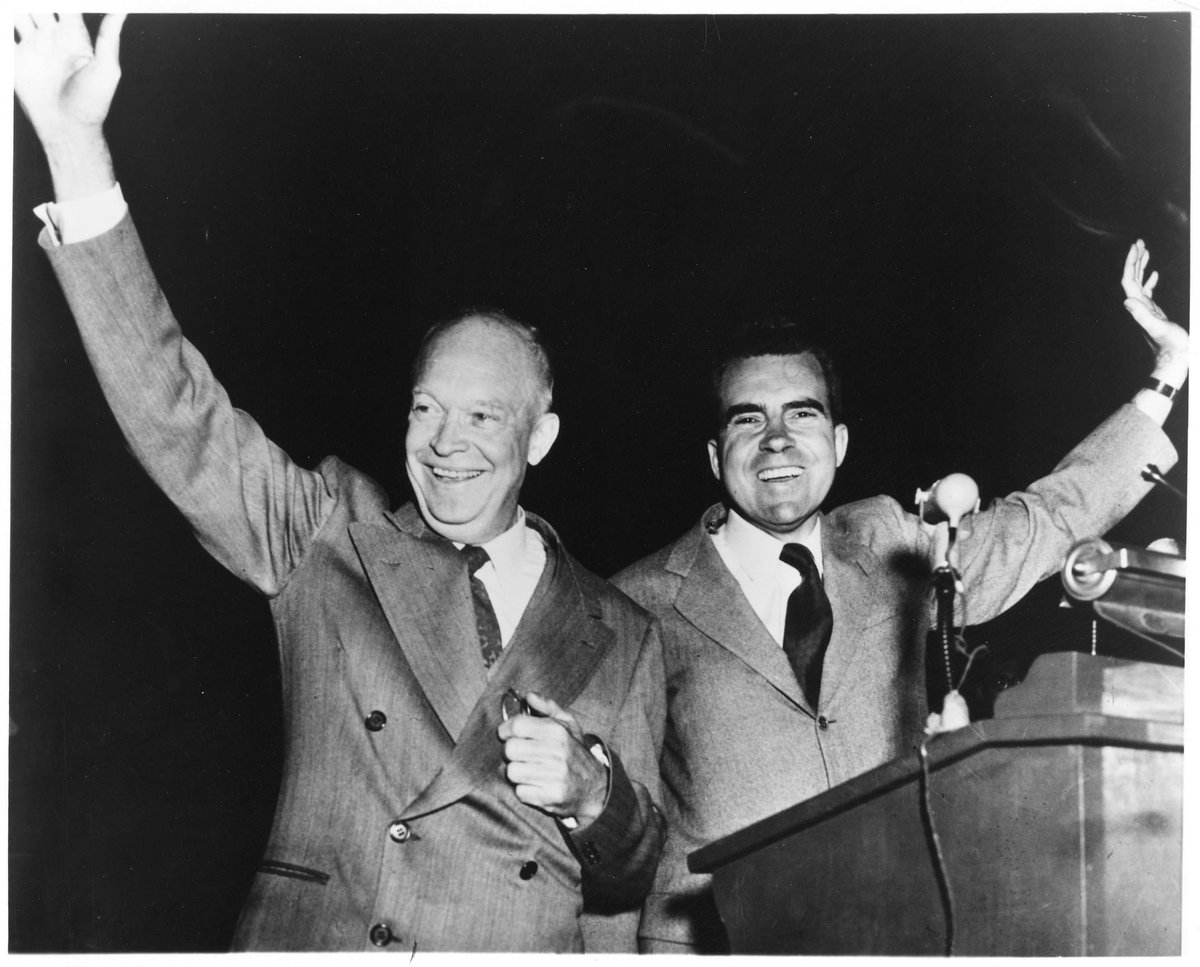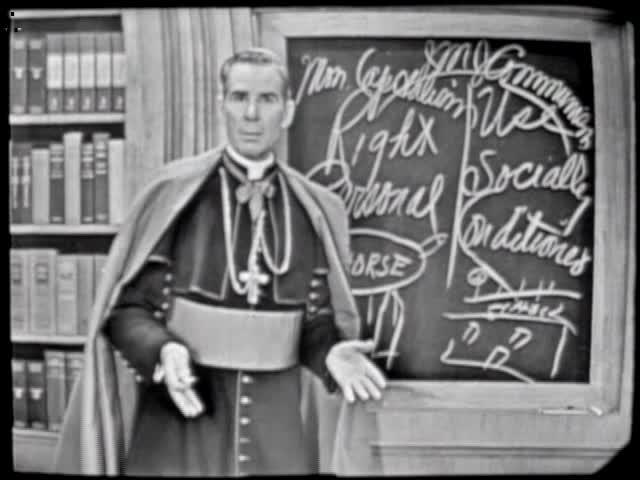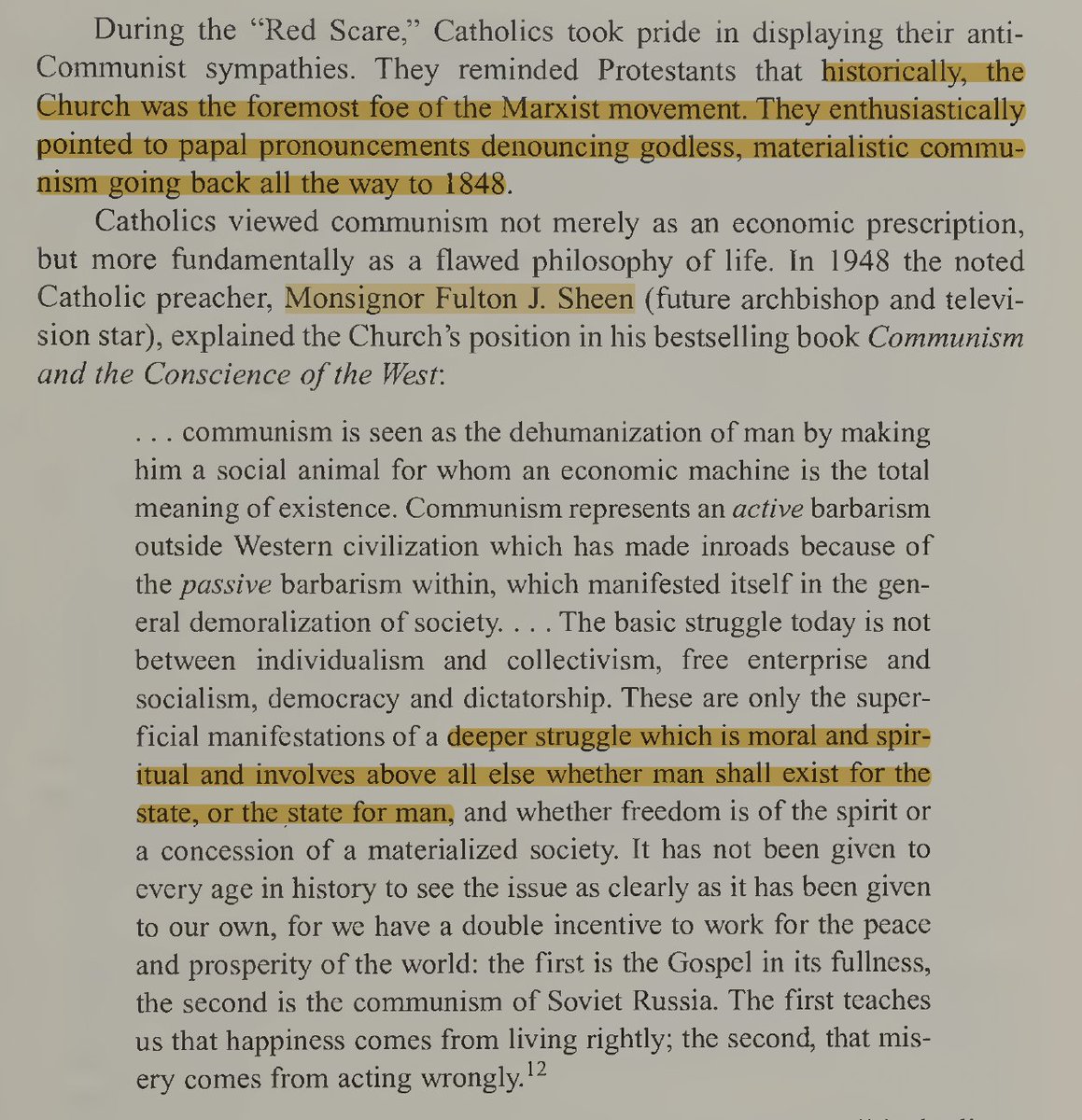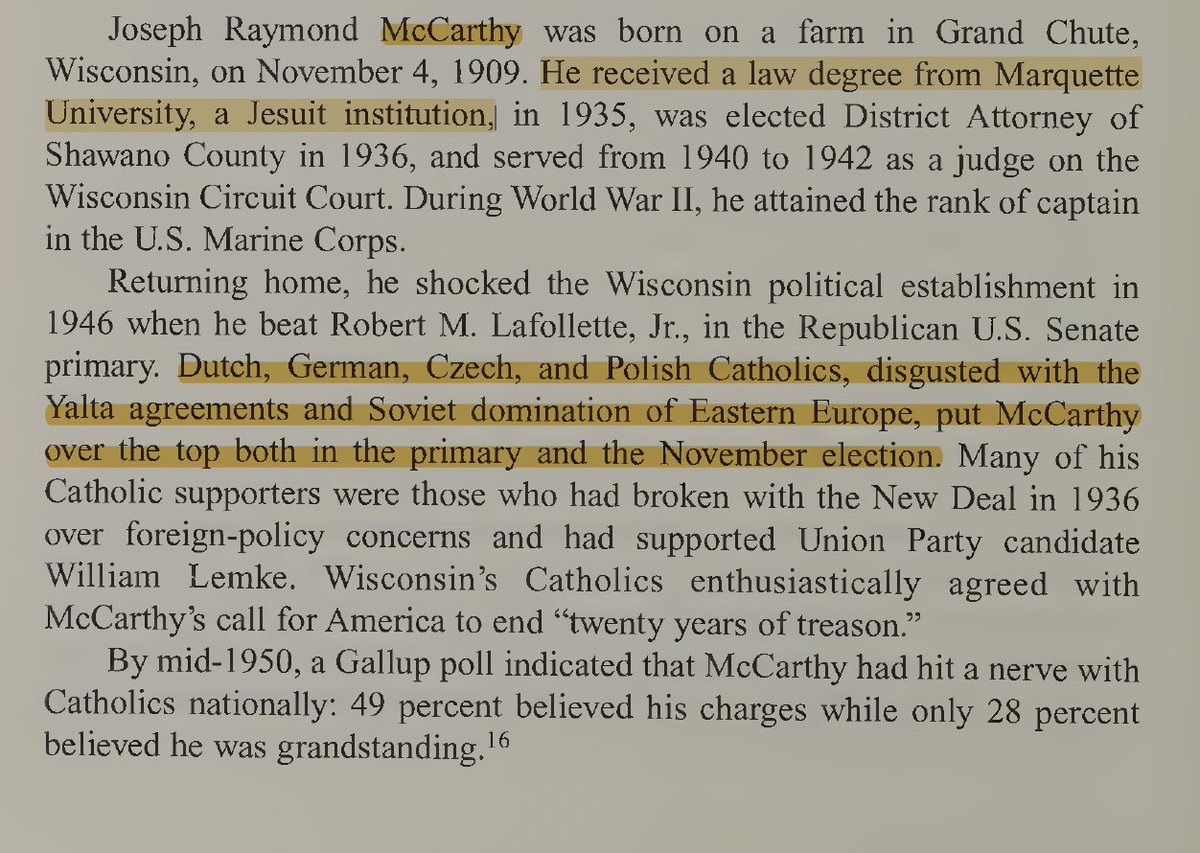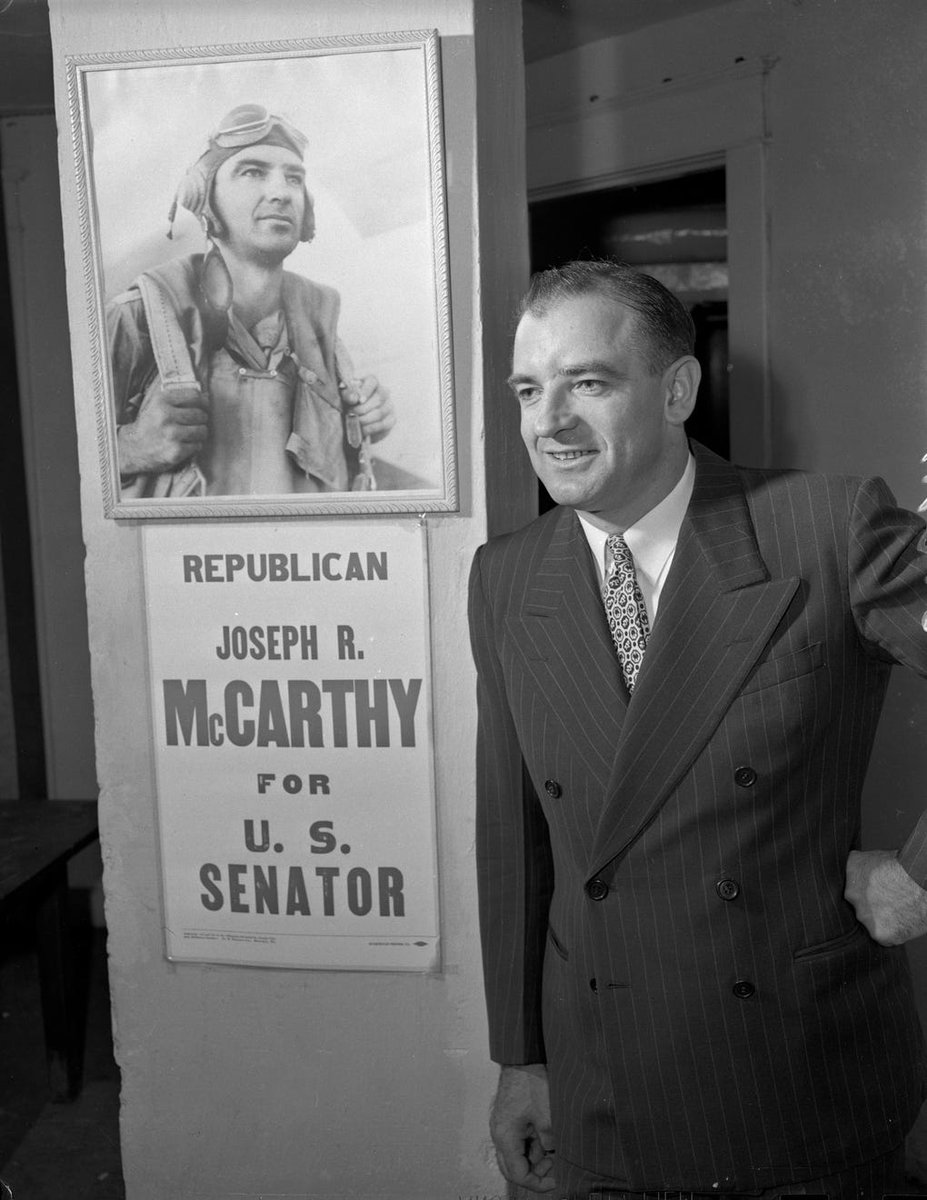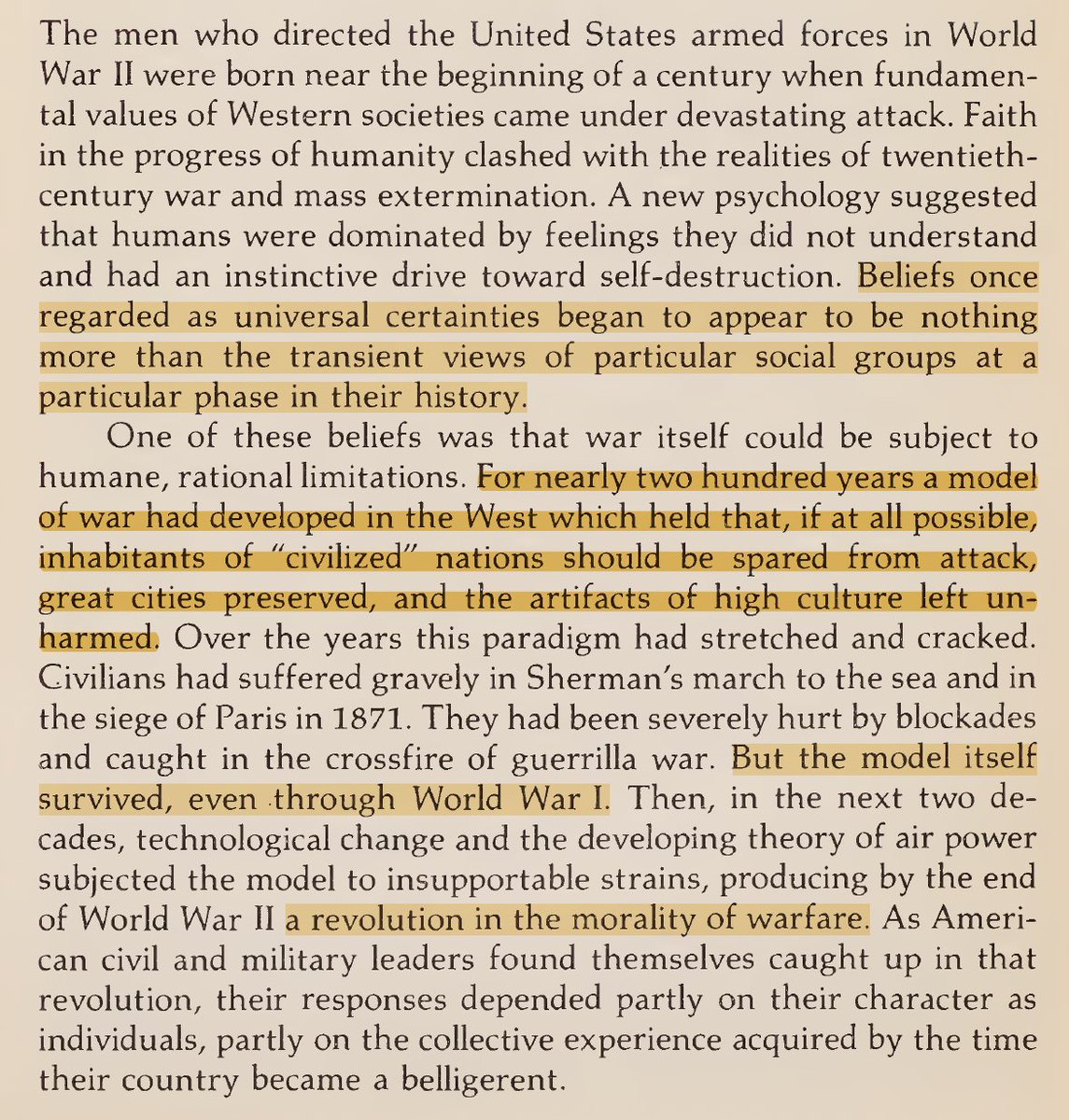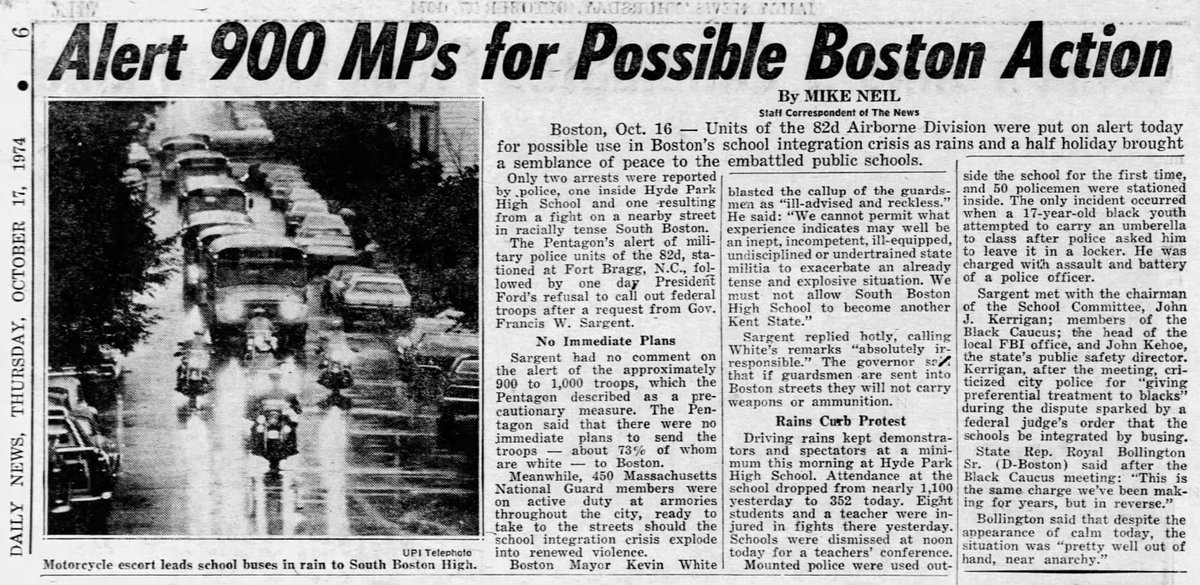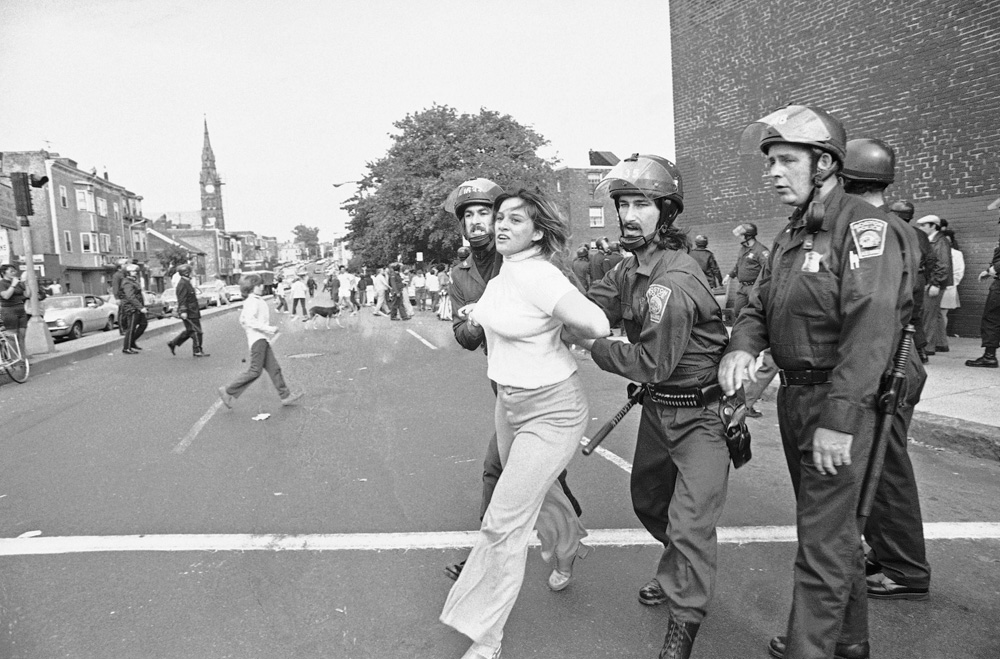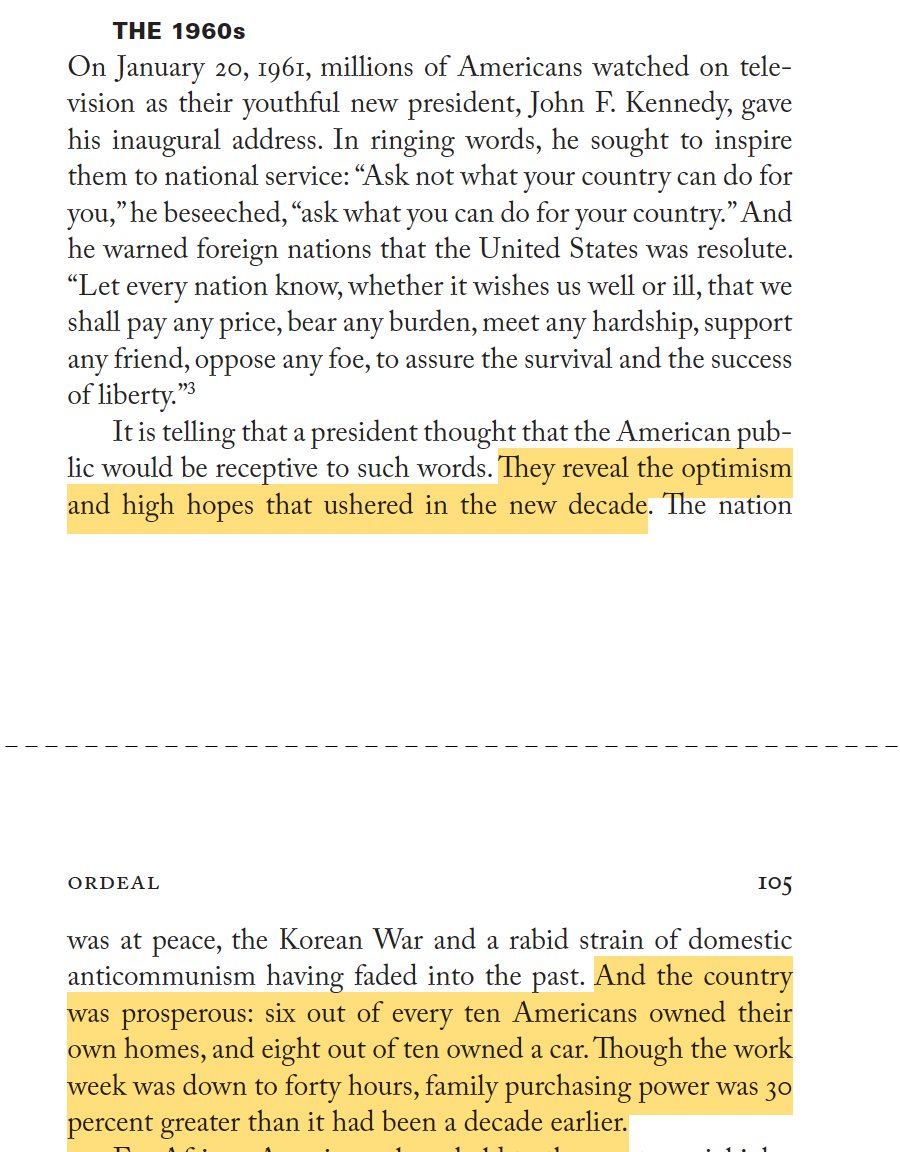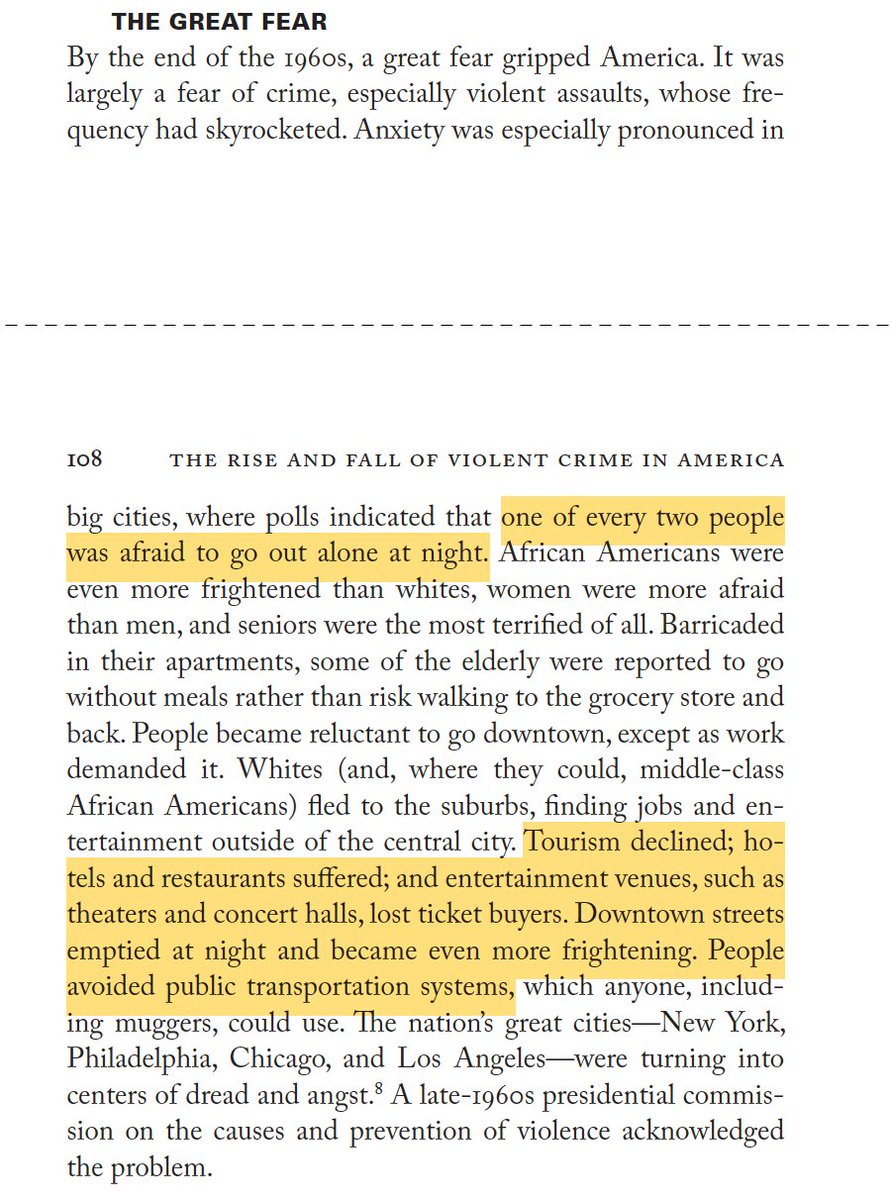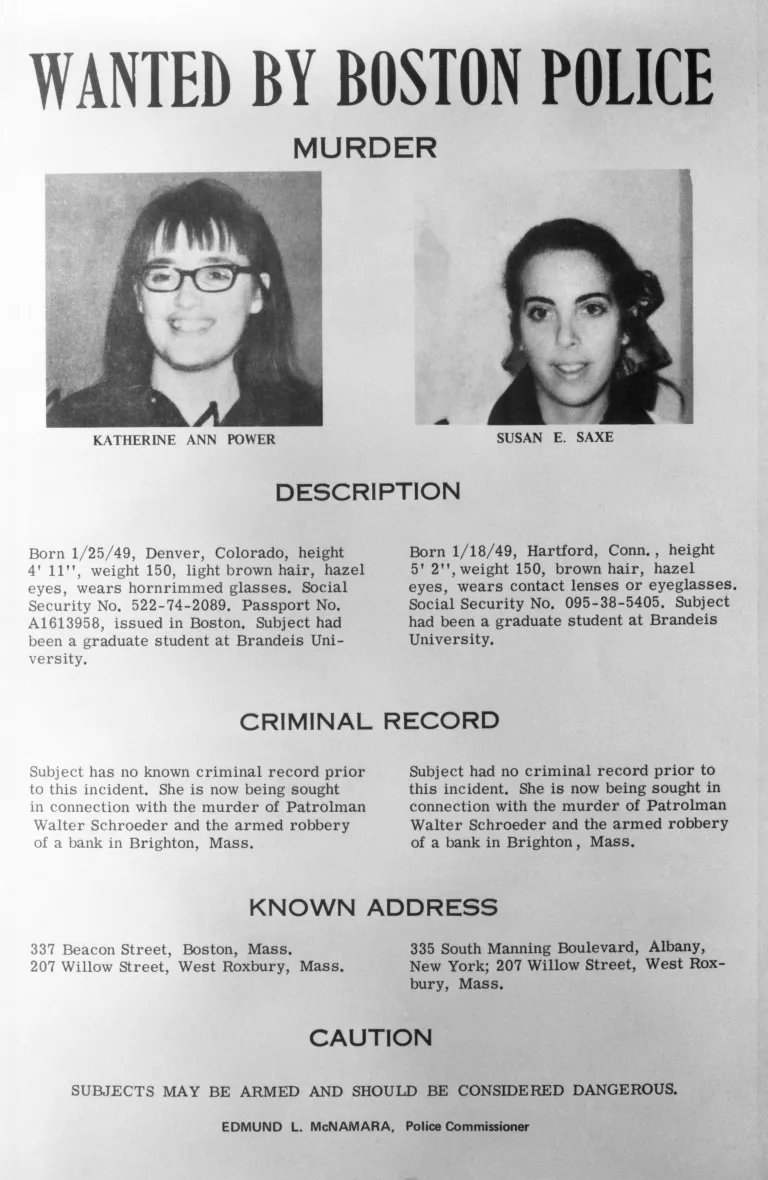Thread on some of the more infamous anti-white terrorist attacks and mass-murders.
> In the early 1970s, the "Zebra Killers" engaged in an organized campaign to kill as many white men, women, and children as possible, with the attacks occurring mostly in the San Francisco area.



> In the early 1970s, the "Zebra Killers" engaged in an organized campaign to kill as many white men, women, and children as possible, with the attacks occurring mostly in the San Francisco area.



The 1983 KFC Murders: Darnell Hartsfield and his cousin Romeo Pinkerton broke into the Kilgore, TX KFC. They abducted and murdered five victims. One of the victims was also raped. 



The 1993 Long Island Railroad massacre: Colin Ferguson, an immigrant from Jamaica, targeted whites, leaving six people dead and 19 wounded. 



1993 Chuck E Cheese murders: Nathan Dunlap visits his former place of employment, shoots 5 former co-workers killing 4. “Colleen O’Connor (17) was shot in the top of the head after falling to her knees and pleading for her life.” 





1997: Ex-con Hastings Arthur Wise murdered four whites at the Aiken Lawn Mower Ignition Plant. Wise had been fired after a violent confrontation with a supervisor. 

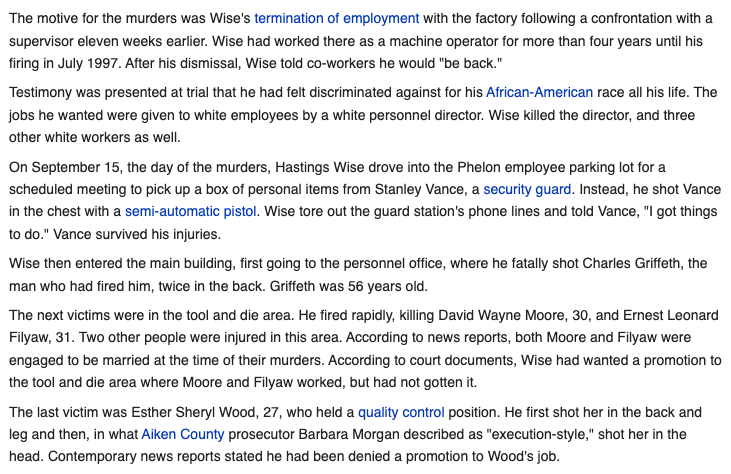

2000: The details of the "Wichita Massacre" sound like a horror movie - brothers Reginald and Jonathan Carr went on a crime spree of murder, kidnaping, robbery, and rape. They killed five white victims, raped two women, and beat a dog to death with a golf club. 







2002: The DC Snipers - John Allen Muhammad and Lee Malvo killed at least 15 people.
Muhammad planned to murder hundreds of whites, and hoped to recruit an army that would carry-out similar atrocities in other American cities.

Muhammad planned to murder hundreds of whites, and hoped to recruit an army that would carry-out similar atrocities in other American cities.
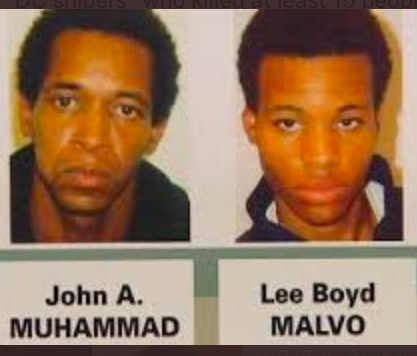

2006: The Richmond spree murders: Ricky Gray and his nephew Ray Dandridge killed 7, including Stella and Ruby Harvey, aged 9 and 4. The Harveys lived in a "diverse" neighborhood, but one night they left their door unlocked - so they died horribly. 





2009: Maurice Clemmons ambushed and murdered four white cops while they were sitting in a coffee shop.
In 2000, Governor Mike Huckabee had commuted the prison sentence of Clemmons, who had 13 felony convictions, including child rape, and was facing 95 years being bars.



In 2000, Governor Mike Huckabee had commuted the prison sentence of Clemmons, who had 13 felony convictions, including child rape, and was facing 95 years being bars.




2010: Omar Thornton murdered eight white coworkers and seriously injured two others. Thorton had been fired for stealing beer. He told the 911 dispatcher that the killings were racially-motivated, and that he wished he’d killed more people. 



2013: Former LA police officer and navy veteran Christopher Dorner killed four people and wounded three others in racially-motivated attacks. 





2013: In racially-motivated shooting spree, 23-year-old Lakim Anthony Faust shot and injured four white men near a Greenville, NC Walmart. 



July 2016: Army veteran Micah Xavier Johnson killed five Dallas police officers at a BLM demonstration. The ambush was one of the deadliest for police in U.S. history. Johnson wanted to "kill white people" and followed a group that encouraged violence against police. 







2016 - 2017: Fredrick Demond Scott, the 22-year-old accused “Indian Creek Killer" is now facing trial for the murder of five white victims in the Kansas City area. In 2014, Scott had threatened to shoot up his high school and “kill all white people.” 







2017, Fresno: Shooting spree by black supremacist Kori Ali Muhammad left four dead. Muhammad hated whites and intended to kill as many whites as possible. Muhammad had a criminal history consisting of arrests on weapons, drugs, and making terrorist threats. 





2019: DeWayne Craddock, a disgruntled city employee, killed 12 and wounded 4 in one of the deadliest workplace shootings in U.S. history. Craddock was killed by responding police. Although the victims were mostly white, it is not clear if the killing-spree was racially-motivated. 





2019: Aurora, another workplace mass-killing: Gary Martin killed 5, and injured 5 police officers and a civilian before being killed by police. Mostly white victims, but no explicit racial motive. Martin had an extensive criminal record, including felony aggravated assault. 







2009 Oakland Rape and Police Murder Spree. On February 9, Lovell Mixon, a felon with an extensive criminal history, raped a 12-year-old. On March 22, Mixon raped two other women at gunpoint. At traffic stop, he shot and killed two cops. Later, he killed two other cops in ambush. 







1990 GMAC Massacre: James Pough killed a man in 1971, but in a plea deal served only 5 years. Early morning June 17, 1990, Pough shot and killed a pimp and prostitute. Later that day Pough entered a GMAC office in Jacksonville, FL and started shooting, killing 9 and wounding 4. 






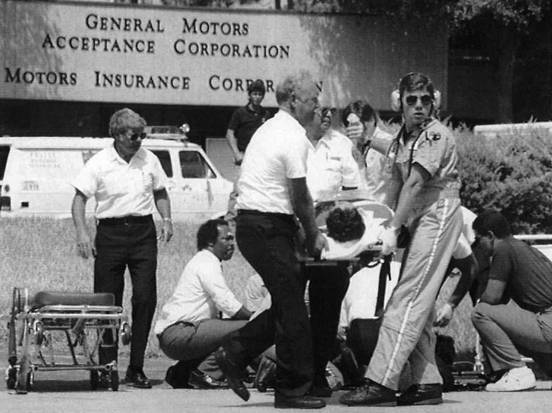
2001 Navistar Massacre: Convicted sex-offender (molested a 12-year old girl) William Baker had been fired for stealing from his job at the Navistar plant. He was due to report to prison. Instead, he returned to his former worksite with an AK, murdering four and wounding two. 





2016 Baton Rouge Police Killings : Black separatist and former Marine Gavin Long killed three police officers and wounded three others. On social media, Long openly supported violence, and expressed admiration for the Dallas police massacre. 




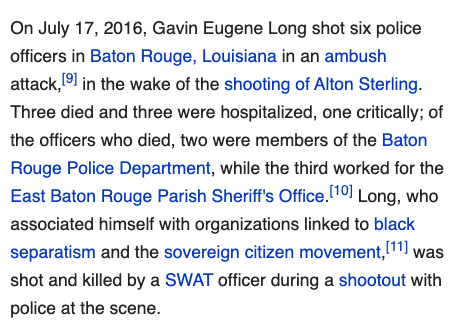


2013: Washington Navy Yard Shooting: Former navy petty officer Aaron Alexis killed 12 and left 8 others injured. Despite a long history of unstable and violent criminal behavior, Alexis still had a security clearance and base access. 





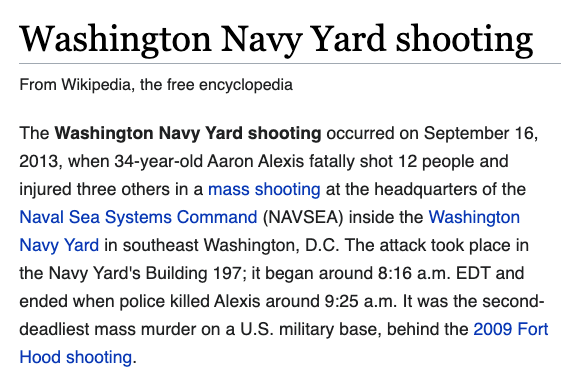

2016 Hesston shooting spree: Cedric Larry Ford had a long criminal history, including charges for burglary, fleeing police officers, and grand theft. After being served with a domestic violence restraining order, Ford went on a shooting spree that killed 3 and wounded 14. 





2020: Milwaukee Molson Coors shooter: Following disputes with a co-worker Anthony Ferrill, 51, an electrician and coast guard veteran, murdered 5 fellow employees. 




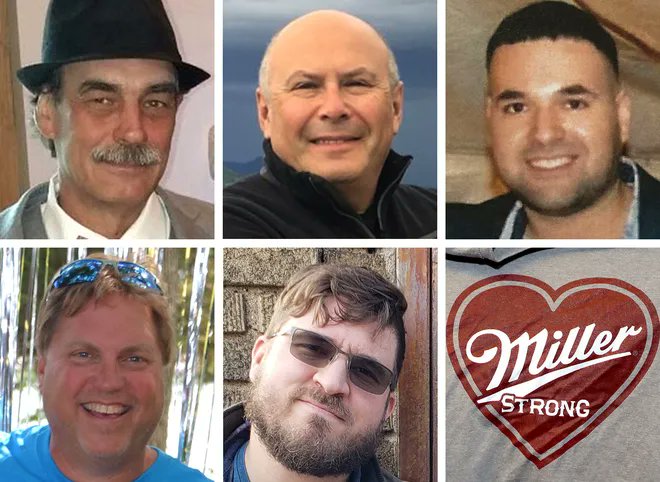


April 7, 2021: NFL veteran Phillip Adams shot and killed six, including Dr. Robert Lesslie, his wife, and two of their grandchildren (9 and 5). No motive has been reported, other than speculation that he “could have been following new religion or ideology.” 







2016 – 2018 Dallas serial killings: Billy Chemirmir, a Kenyan immigrant, is believed to have murdered at least 18 elderly women in the Dallas area. Police are still investigating hundreds of additional potential cases. 






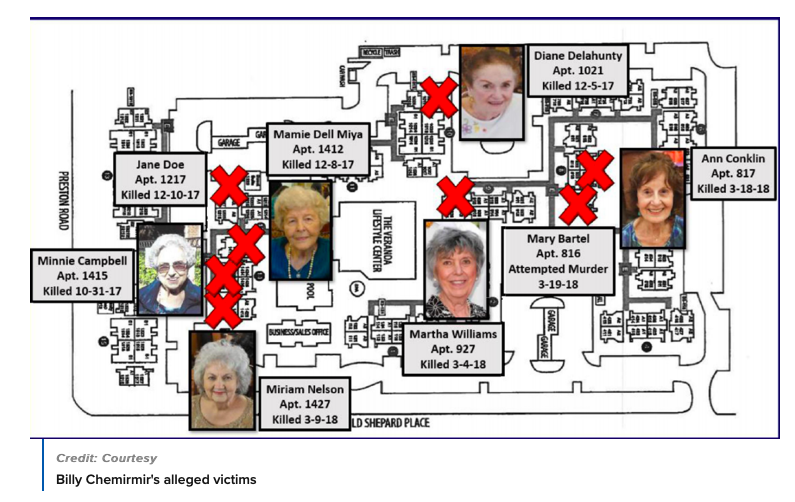
The Waukesha Christmas Parade Massacre: On November 21, 2021, during a period of intense anti-white agitation by the regime media, Darrell Brooks killed six people and injured dozens more. Brooks had a long criminal record, and a history of promoting anti-white violence. 







April 12, 2022: Black terrorist and career criminal Frank James tossed two smoke grenades and opened fire on a subway train in Brooklyn. Ten victims were shot, and 19 others injured. James's Glock jammed, or the attack would have been much worse. 







February 7, 2008: Kirkwood City Council Massacre. Disgruntled businessman Charles Lee "Cookie" Thornton went on a shooting rampage at the city hall, murdering six Whites, including the mayor and two cops. Thornton had previous arrests for assault and disrupting public meetings. 





Kendall Francois strangled eight White prostitutes from 1996 to 1998 and stored their remains in his home in Poughkeepsie, New York. His relatives claim they were not aware, despite the stench of decomposed corpses. Police had assumed the killer was a White man. 





The "New Orleans sniper" - Black nationalist Mark Essex shot a total of 21 people, nine of whom died, in two separate attacks on December 31, 1972, and January 7, 1973. A former Black Panther, Essex seems to have set-out to murder as many Whites as possible. 







On December 7, 1987, David Burke killed 43 people when he shot the pilots of PSA 1771, crashing the plane and leaving no survivors. Burke, a former airline employee, first shot the supervisor who had fired him for stealing. Burke was violent, drug-trafficking immigrant. 


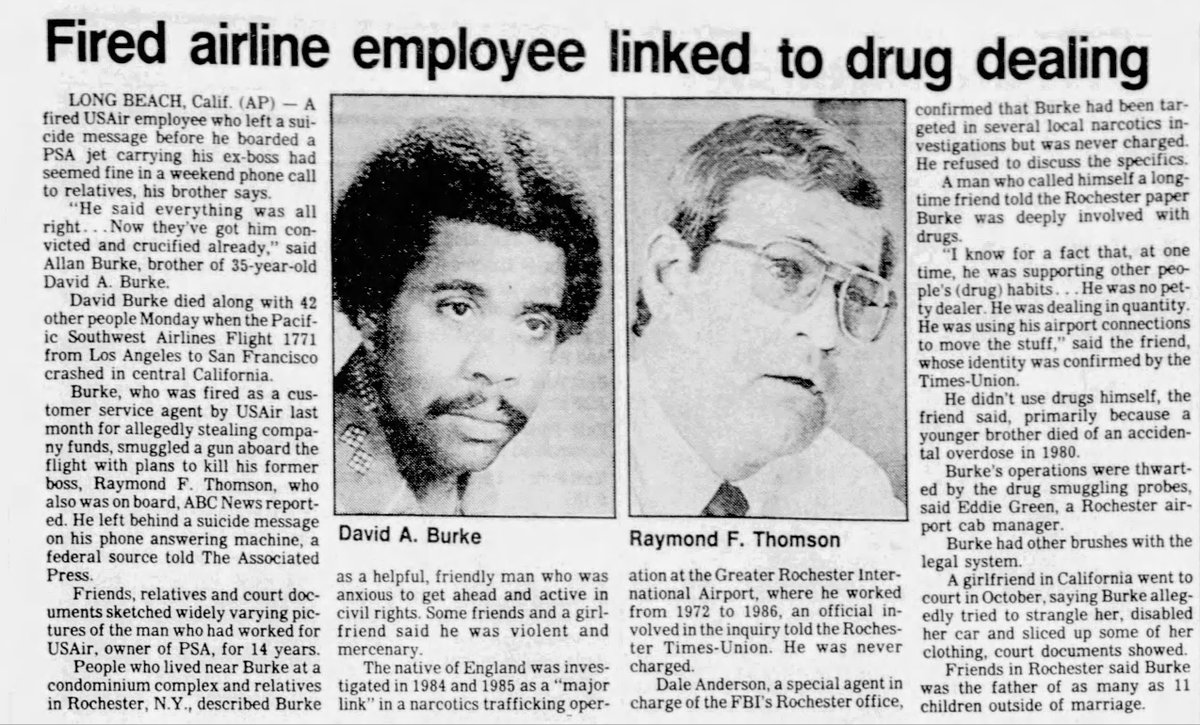
On July 15, 2011, Nkosi Thandiwe shot three women, killing 26-year-old Brittney Watts. Thandiwe, who was from a well-to-do family, was incited by anti-White propaganda he absorbed in college. Thandiwe “was trying to prove a point that Europeans had colonized the world ..." 







• • •
Missing some Tweet in this thread? You can try to
force a refresh



